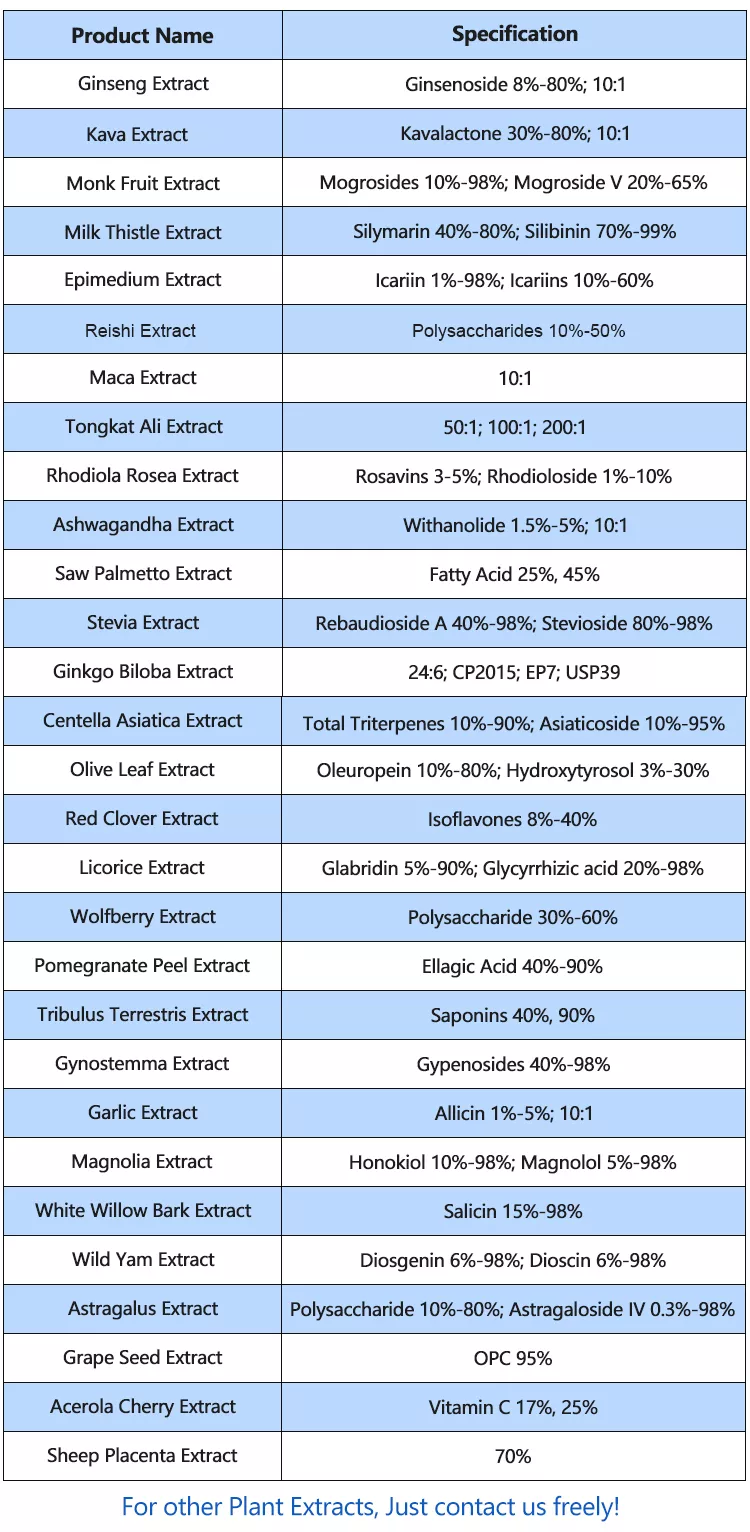Ashwagandha Extract, also known as Withania somnifera or Indian ginseng, is a popular herb used in traditional Ayurvedic medicine for various health purposes. Its root extract is commonly used as a supplement to promote overall well-being and manage stress-related conditions. As with any supplement or herbal remedy, it’s essential to consider its possible effectiveness, side effects, and special considerations:

Possible Effectiveness:
1.Adaptogenic properties: Ashwagandha is considered an adaptogen, which means it may help the body cope with stress and promote balance.
2.Stress reduction: Some studies suggest that ashwagandha may help reduce stress and anxiety symptoms in individuals.
3.Cortisol regulation: Cortisol is a stress hormone, and ashwagandha has been shown to potentially regulate its levels in the body.
- Immune system support: Ashwagandha Extract might have immunomodulatory effects, supporting the immune system’s functioning.
- Cognitive function: Some research suggests that ashwagandha could have a positive impact on memory and cognitive function.
- Anti-inflammatory properties: Ashwagandha contains compounds that have shown anti-inflammatory effects in preclinical studies.
It’s important to note that while some studies have shown promising results, more research is needed to fully understand the extent of ashwagandha’s effectiveness for various health conditions.

Side Effects:
Ashwagandha Extract is generally considered safe for most people when taken in appropriate doses. However, some individuals may experience side effects, which can include:
- Gastrointestinal discomfort: Upset stomach, diarrhea, or nausea.
- Allergic reactions: Some people may be sensitive or allergic to ashwagandha, leading to skin rashes or other allergic symptoms.
- Interactions with medications: Ashwagandha may interact with certain medications, especially those that affect the central nervous system or have sedative effects.
Special Considerations:
- Pregnancy and breastfeeding: Pregnant and breastfeeding women should avoid ashwagandha supplements due to the lack of safety data in these populations.
- Autoimmune disorders: If you have an autoimmune condition, it’s best to consult a healthcare professional before using ashwagandha, as it may modulate the immune system.
- Surgery: Ashwagandha Extract might have sedative effects and could interact with anesthesia and other medications used during surgery. It is advisable to stop taking ashwagandha at least two weeks before any scheduled surgery.
- Dosing: It’s essential to follow the recommended dosages provided by reputable sources or healthcare professionals. High doses may lead to adverse effects.

Always consult with a healthcare provider before starting any new supplement, especially if you have pre-existing health conditions or are taking medications. Your healthcare provider can help determine if ashwagandha is appropriate for you and what the right dosage would be.
